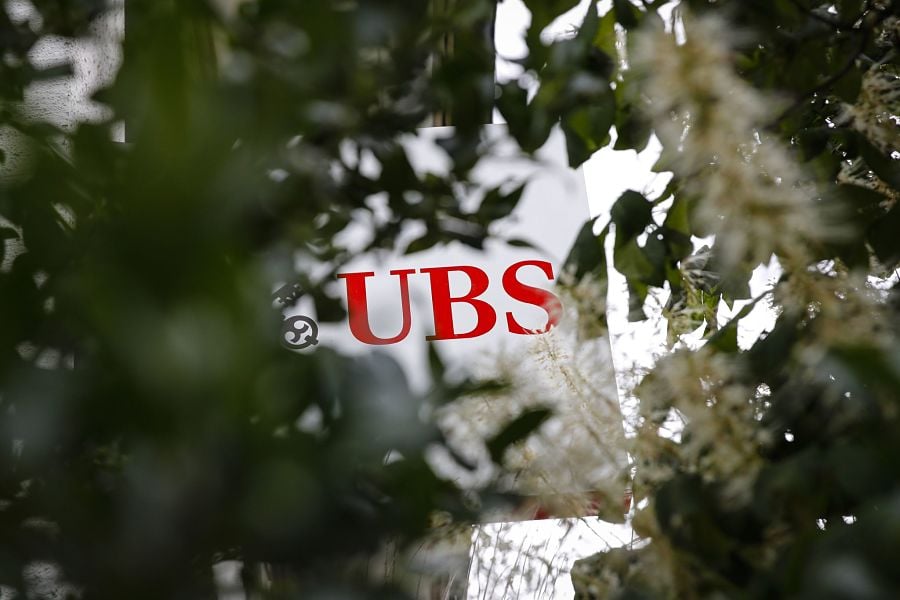

UBS Group Wednesday morning became the latest wealth management firm to declare it was increasing yields on clients' cash held in advisory accounts, joining Wells Fargo & Co., Morgan Stanley and others who also recently raised rates due to competitors paying substantially better yields on cash.
Todd Tuckner, UBS Group's chief financial officer, said during a conference call with investors to discuss company earnings that by the middle of the fourth quarter the wirehouse and global bank intends to adjust the sweep deposit rates in U.S. advisory accounts, with the company expecting a reduction in pretax profits by around $50 million annually.
Broker-dealers are particularly interest rate sensitive companies; they generate income from spreads on customer cash and margin loans to clients.
Ever since interest rates began rising in 2022 post the Covid-19 pandemic, wealth management firms have faced questions about low interest rates they continued to pay clients on cash deposits, which can typically make up 5% or less of a client's overall portfolio.
Tuckner did not specify what the new rates would be during the call.
The broader wealth management industry, which for decades has toggled back and forth between charging clients commissions in brokerage accounts and fees in advisory accounts, has been wrestling with rate of interest in pays clients for cash for some time now, most recently for the past month during this recent earnings season.
Wells Fargo & Co., which had been under the scrutiny of the Securities and Exchange Commission over the matter, on July 12 said it increased yields for advisory clients of its 12,000 financial advisors, reducing net interest income this year by $350 million.
That sent off a torrent of bad news for the brokerage industry, including the threat of potential class action lawsuits from investors claiming they were shortchanged by brokerage firms due to meager yields on cash. By August 5, the NYSE ARCA Broker Dealers index, with the ticker .XBD, was trading at a recent low of $584, a decline of almost 13% from a recent high in July. The group has recovered, and Wednesday afternoon, .XBD was trading near $651.
One analyst noted that UBS' move today, implying modest pricing adjustments on client cash, boded well for competitors like Charles Schwab Corp., with the ticker SCHW, and LPL Financial Holdings Inc., or LPLA.
"UBS reported second quarter results and provided a much-anticipated update on sweep cash," wrote Steven Chubak, managing director of Wolfe Research. "The company did not provide much specificity beyond the revenue impact, but back of the envelope math implies only modest pricing adjustments on $12 billion of [clients'] advisory sweep cash, which is more in line with Morgan Stanley."
"Why is this positive," Chubak asked. The share prices of both LPL Financial and Schwab "have meaningfully lagged since the deposit saga began, and this development increases the likelihood that neither firm adjusts pricing on sweep cash, and other [independent broker-dealers] will maintain current pricing as well."
These events do not "permanently remove the overhang" facing brokerage firms, particularly as risk from litigation about the interest rate issue remains, Chubak noted. "But it does bolster the case made by bulls that the IBDs could be largely insulated from this risk," he added.
Another analyst echoed the positive sentiment for Schwab. "As we look ahead, we continue to believe we are close to stabilization in sweep cash," wrote Jeff Schmitt, an analyst with William Blair Equity Research in a note today about Charles Schwab, particularly as the Federal Reserve appears to be on the verge of easing interest rates.

Eliseo Prisno, a former Merrill advisor, allegedly collected unapproved fees from Filipino clients by secretly accessing their accounts at two separate brokerages.

The Harford, Connecticut-based RIA is expanding into a new market in the mid-Atlantic region while crossing another billion-dollar milestone.

The Wall Street giant's global wealth head says affluent clients are shifting away from America amid growing fallout from President Donald Trump's hardline politics.

Chief economists, advisors, and chief investment officers share their reactions to the June US employment report.

"This shouldn’t be hard to ban, but neither party will do it. So offensive to the people they serve," RIA titan Peter Mallouk said in a post that referenced Nancy Pelosi's reported stock gains.
Orion's Tom Wilson on delivering coordinated, high-touch service in a world where returns alone no longer set you apart.
Barely a decade old, registered index-linked annuities have quickly surged in popularity, thanks to their unique blend of protection and growth potential—an appealing option for investors looking to chart a steadier course through today's choppy market waters, says Myles Lambert, Brighthouse Financial.
